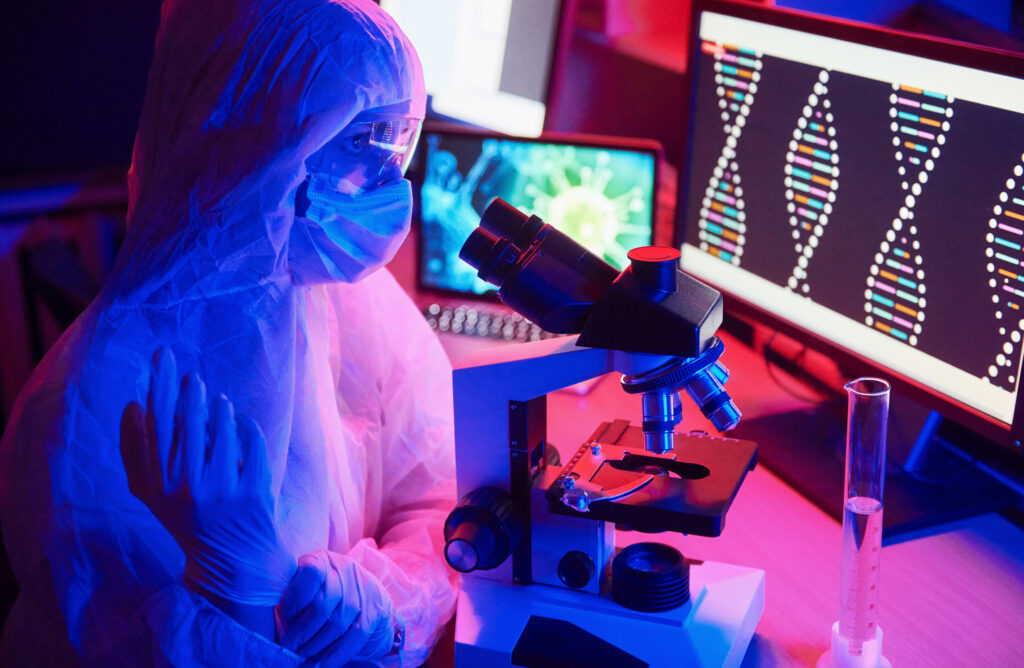The future for Li-Fraumeni syndrome management focuses on several promising areas:
- Improved surveillance protocols: Enhanced screening programs are being developed to detect cancers earlier when they’re more treatable. These include whole-body MRI scans, regular blood tests, and other targeted screenings based on age and risk factors.
- Genetic counseling advancements: As genetic testing becomes more accessible and comprehensive, families can receive more detailed risk assessments and personalized screening recommendations.
- Targeted therapies: Research is ongoing into medications that might specifically address the TP53 mutation (the genetic defect responsible for Li-Fraumeni syndrome). Some studies are exploring whether certain drugs might help restore normal p53 function.
- Precision medicine approaches: Treatment plans increasingly consider the specific genetic profile of each patient’s cancer, potentially leading to more effective therapies with fewer side effects.
- Risk reduction strategies: Research continues on potential preventive measures, including lifestyle modifications and possibly chemoprevention options.
- Support networks: The growth of patient advocacy groups and international registries is improving both research opportunities and support for affected individuals.
Genetic Advancements Beyond just identifying the TP53 mutation, researchers are now studying specific mutation types and their correlation with cancer risk profiles. Some TP53 mutations may carry different risks than others, potentially allowing for more personalized surveillance. Additionally, genetic modifiers (other genes that may influence how the TP53 mutation is expressed) are being investigated to better understand why some individuals develop cancer earlier or more frequently than others with the same mutation.
Therapeutic Interventions Several promising approaches are being explored:
- Small molecule drugs designed to restore functionality to mutant p53 proteins
- Gene therapy to deliver functional TP53 genes to cells
- CRISPR gene editing technologies that could potentially correct the mutation
- Immunotherapy approaches tailored to Li-Fraumeni-associated cancers
Reproductive Options For families affected by Li-Fraumeni syndrome, preimplantation genetic diagnosis (PGD) offers the possibility of selecting embryos without the TP53 mutation during IVF procedures. This technology continues to improve and become more accessible.
International Collaboration The International Agency for Research on Cancer (IARC) maintains a TP53 database, and several international registries collect data on Li-Fraumeni patients. These collaborative efforts are improving our understanding of the syndrome and accelerating research toward better management strategies.
Psychological Support Living with Li-Fraumeni syndrome carries significant psychological burden. Future care models increasingly recognize the importance of integrating psychological support with medical management, including specialized counseling for families navigating this complex hereditary condition.
I’ll share more detailed information about recent developments and future directions for Li-Fraumeni syndrome:
Chemoprevention Research
Researchers are investigating potential medications that might reduce cancer risk in Li-Fraumeni syndrome patients:
- Metformin, a diabetes medication, has shown potential anti-cancer properties and is being studied for possible protective effects
- Certain anti-inflammatory drugs are being evaluated for their potential to reduce cancer development
- Antioxidant supplementation regimens are being researched, though results remain preliminary
Radiation Management
Because individuals with Li-Fraumeni syndrome have heightened sensitivity to radiation-induced cancers, medical practice is evolving to:
- Minimize diagnostic radiation exposure through alternative imaging technologies
- Develop Li-Fraumeni-specific radiation oncology protocols that balance treatment efficacy with secondary cancer risk
- Implement radiation-sparing surgical approaches when possible
Innovative Screening Approaches
Beyond current protocols, emerging screening methods include:
- Methylation analysis of cell-free DNA as a potential early cancer biomarker
- Proteomics approaches to identify protein signatures associated with early cancer development
- Advanced ultrasound techniques that reduce radiation exposure while maintaining diagnostic accuracy
Patient Registries and Big Data
The Li-Fraumeni Exploration (LiFE) Consortium and similar international efforts are:
- Collecting longitudinal data on thousands of affected individuals
- Identifying environmental and lifestyle factors that may influence cancer development
- Using machine learning to develop predictive models for individual risk assessment
Telehealth Integration
Specialized telehealth programs are being developed specifically for Li-Fraumeni families to:
- Provide expert genetic counseling to geographically remote patients
- Monitor adherence to complex screening protocols
- Deliver psychological support between clinical visits
Education and Advocacy
Organizations like the Li-Fraumeni Syndrome Association are driving progress through:
- Patient-driven research initiatives and funding
- Development of educational resources for both patients and healthcare providers
- Advocacy for insurance coverage of comprehensive screening protocols
Quality of Life Research
Increasing attention is being paid to:
- The impact of “scanxiety” (anxiety related to frequent screening) on mental health
- Balancing cancer surveillance with maintaining normal life activities
- Supporting patients through multiple cancer diagnoses and treatments
These multifaceted approaches represent a shift toward comprehensive care that addresses not only the medical aspects of Li-Fraumeni syndrome but also the psychological, social, and practical challenges faced by affected individuals and families

